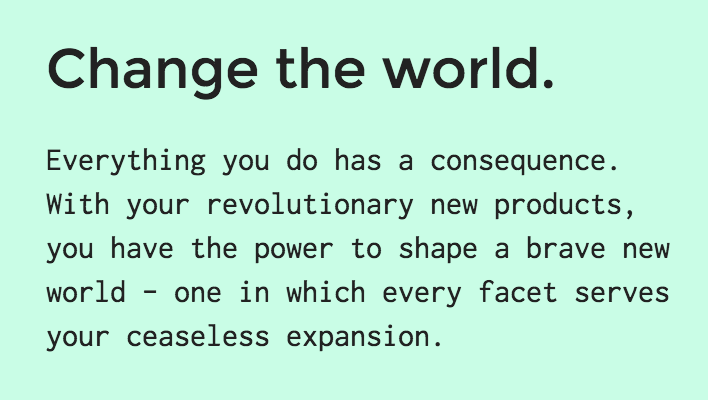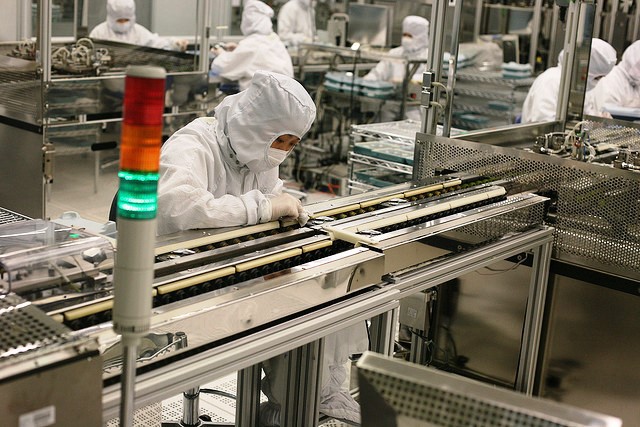Developer Francis Tseng, who made Humans of Simulated New York, is currently crowdfunding a dystopian business simulator called The Founder. You play as the head of a startup and your goal is to grow the company however you can. Little obstacles like other people’s lives shouldn’t bother you!

Image via the Kickstarter campaign.
Tseng writes in his crowdfunding pitch:
“How is the promise of technology corrupted when businesses’ relentlessly growth-oriented and profit-seeking logic plays out to its conclusion? What does progress look like in a world obsessed with growth, as measured only by sheer economic output?”
It looks a lot like San Francisco. That’s not a compliment.
“Winning in The Founder means shaping a world in which you are successful — at the expense of almost everyone else.”
Not so different from the real world of business, right?

Screenshot from the game site.
I don’t believe that economics is a zero-sum game, especially when it comes to technology. “Innovation” may be an over-fetishized buzzword, but it really is able to move the needle on people’s quality of life.
Unfortunately, that aspect of industry is not prioritized in practice. The profit motive should be a proxy for ~making the world a better place~ but it often gets treated as an end in and of itself.
The Founder interrogates this trend and hopefully makes the player feel uneasy about their own incentives. If you’re interested in playing, contribute!
“The best minds of my generation are thinking about how to make people click ads.” — Jeffrey Hammerbacher, data scientist and early Facebook employee




